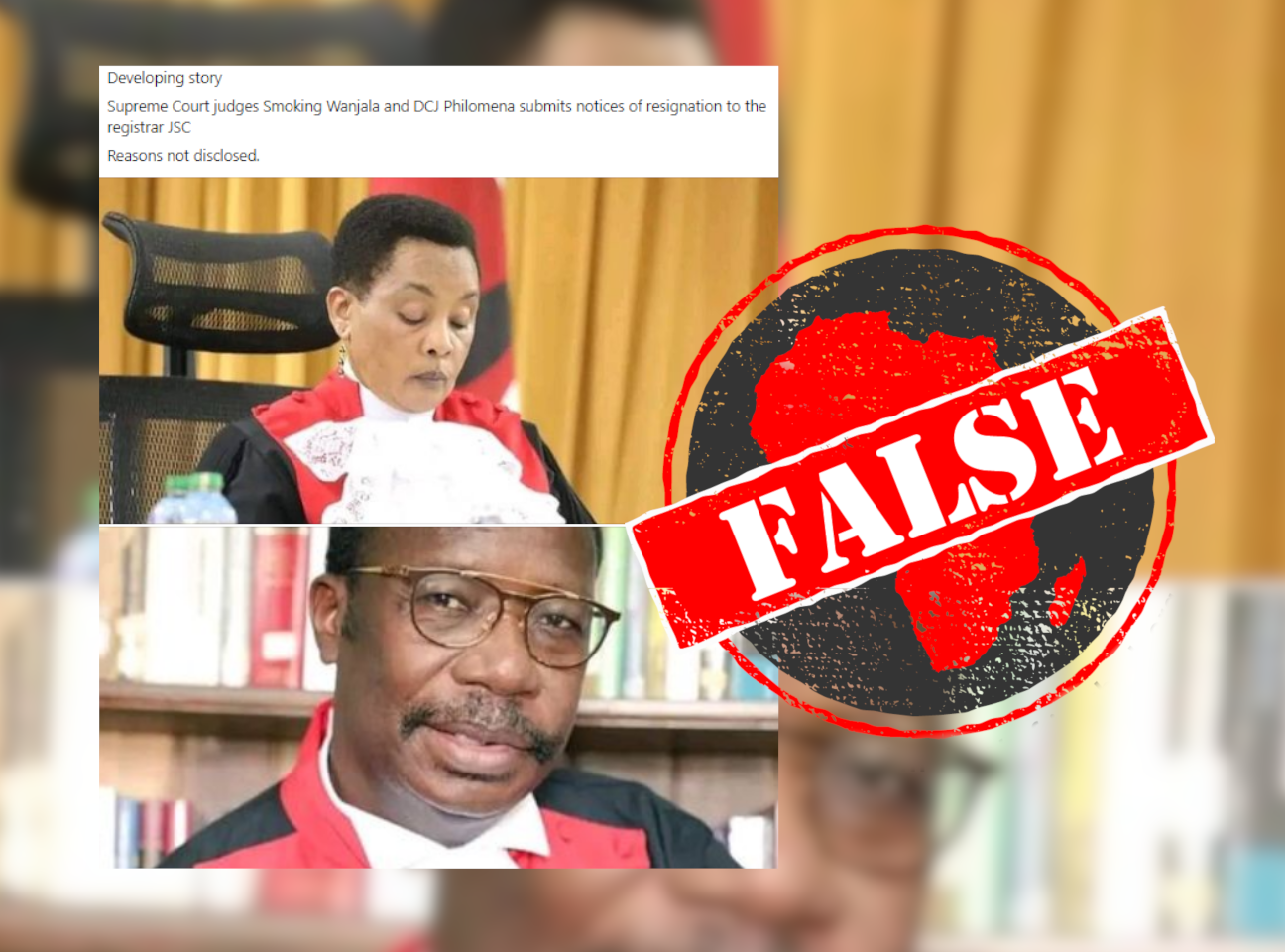IN SHORT: Kenya’s judiciary has warned that claims that two supreme court judges have resigned are “fake”.
A Facebook post claims two judges of Kenya’s highest court have resigned. The 11 September 2022 post includes two photos, one of deputy chief justice Philomena Mwilu and the other of justice Dr Smokin Wanjala.
The post claims the two supreme court judges submitted resignation notices to the Judicial Service Commission (JSC) for “reasons not disclosed”.
The JSC is involved in the hiring of judges, among other things. The judiciary is responsible for interpreting the law, punishing law offenders, and resolving disputes between aggrieved parties.
The country’s highest court has been in the public eye after the results of the presidential vote in Kenya’s August 2022 general election were challenged.
Former prime minister Raila Odinga disputed the result as declared by the country’s elections agency.
But a full bench of seven judges unanimously upheld the win of president William Ruto, who received 7,176,141 votes. Odinga, drew in 6,942,930 votes.
Claims that Mwilu and Wanjala had resigned started circulating in the days following the court’s 5 September ruling.
The other five supreme court judges are chief justice Martha Koome, justice Isaac Lenaola, justice Mohammed Ibrahim, lady justice Njoki Ndung’u and justice William Ouko.
The claim about Mwilu and Wanjala’s resignation was also posted here, here, here and here. But is it true?

Ignore false reports – judiciary
Kenya’s judiciary has dismissed the claim through its official verified Twitter account.
It stamped “FAKE” on a screenshot of the claim that the two judges had resigned.
Republish our content for free
For publishers: what to do if your post is rated false
A fact-checker has rated your Facebook or Instagram post as “false”, “altered”, “partly false” or “missing context”. This could have serious consequences. What do you do?
Click on our guide for the steps you should follow.
Publishers guideAfrica Check teams up with Facebook
Africa Check is a partner in Meta's third-party fact-checking programme to help stop the spread of false information on social media.
The content we rate as “false” will be downgraded on Facebook and Instagram. This means fewer people will see it.
You can also help identify false information on Facebook. This guide explains how.


Add new comment